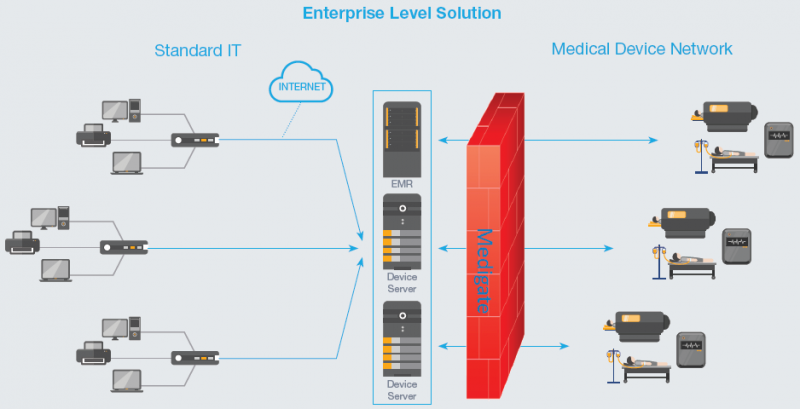Israel-based startup Medigate emerged from stealth mode on Tuesday with a firewall designed specifically for protecting medical devices, and more than $5 million in seed funding.
Healthcare organizations have been increasingly targeted in the past few years, including in ransomware attacks and operations whose goal was to obtain sensitive medical information. Experts have often also warned about the possibility of attacks aimed at disrupting medical treatment.
While medical devices are increasingly connected, protecting them against cyber threats requires a different approach compared to common IT systems. Applying software patches and installing traditional endpoint security solutions on medical systems can cause disruptions, which is why these devices often remain vulnerable and serve as key pivot points within the targeted organization’s network, as shown by the MEDJACK attacks.
Medigate aims to address this problem with a dedicated platform for securing medical devices that are connected to electronic medical records, device servers, other enterprise systems, and even the Internet.
Using knowledge of the medical workflow, Medigate’s firewall solution provides complete visibility into all devices on the network and allows organizations to quickly identify anomalies and suspicious activity. In addition to detecting threats, the product also blocks malicious communications to prevent any damage, Medigate said.
The firewall sits between the medical devices and the servers they communicate with in an effort to prevent attackers from taking control of this part of the network.

“Because it is not possible to effectively deploy endpoint security solutions and regular security patches to these devices, they significantly increase the exposure in my organization’s overall risk posture,” said Heath Renfrow, U.S. Army Medicine CISO. “A product like Medigate would add a much necessary layer of defense, significantly reducing the risk of medical device vulnerabilities to my networks.”
Medigate’s solution is currently available to a limited number of qualified organizations, but it’s expected to become generally available in mid-2018.
Medigate has raised $5.35 million in a seed funding round led by YL Ventures, a seed-stage venture capital firm that invests in Israeli innovations, with participation from early-stage VC company Blumberg Capital.
Related: A Fact Check on Medical Device Security
Related: FDA Releases Guidance for Medical Device Cybersecurity
Related: Security Firm Discloses Medical Device Flaws as Part of Investment Strategy
Related: Sobering Thoughts When a Connected Medical Device Is Connected to You














